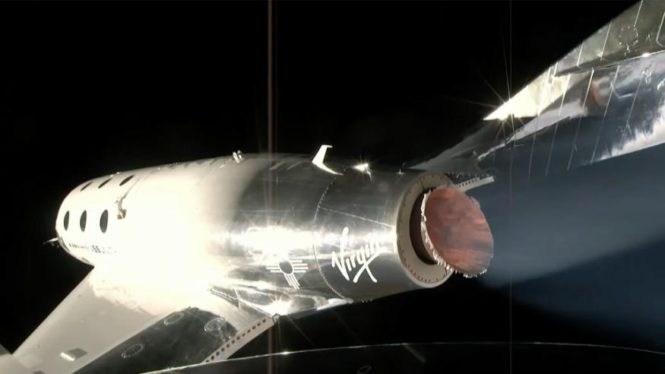Virgin Galactic is finally on the cusp of launching its space tourism business. After a late start, the company has completed its last VSS Unity flight test before commercial service starts. The Unity 25 mission tested both technical functionality and the overall experience for astronauts, and reached space at roughly 12:26PM Eastern. The launch also made a little history: crew member Jamila Gilbert became the first female astronaut from New Mexico, according to Virgin. Gilbert and fellow crewmates Chris Huie, Luke Mays and Beth Moses are all Virgin employees.
The company has delayed this test multiple times. The final delay stemmed from difficulties upgrading the VMS Eve host aircraft, which ferries Unity to 50,000 feet. Virgin completed an unpowered test flight in late April, but its first crewed flight dates back to July 2021, when founder Richard Branson joined Moses, Sirisha Bandla and Colin Bennett for Unity 22. Unity 25 is Virgin's fifth spaceflight of any kind.
The successful test is important for Virgin. It has operated at a loss for years as it kept pushing back its space tourism plans, and lost over $500 million in 2022 alone. The company expects to fly paying customers in late June, and it needs those passengers' $450,000 tickets to help recoup its investment. Now, it's more a matter of firming up details than overcoming technological hurdles.
Virgin trails Blue Origin, which is already launching civilians into space. It's closer to passenger spaceflights than SpaceX, though. While Elon Musk's outfit announced its lunar tourism plans years ago, it has yet to send a Starship rocket into space with crew aboard. Not that SpaceX is necessarily concerned. Virgin is focused on less ambitious (if also less expensive) suborbital flights where Starship will be used for both tourists' lunar orbits and NASA's Moon landings.
This article originally appeared on Engadget at https://www.engadget.com/virgin-galactic-completes-its-final-vss-unity-flight-test-before-space-tourism-debut-163150722.html?src=rss




